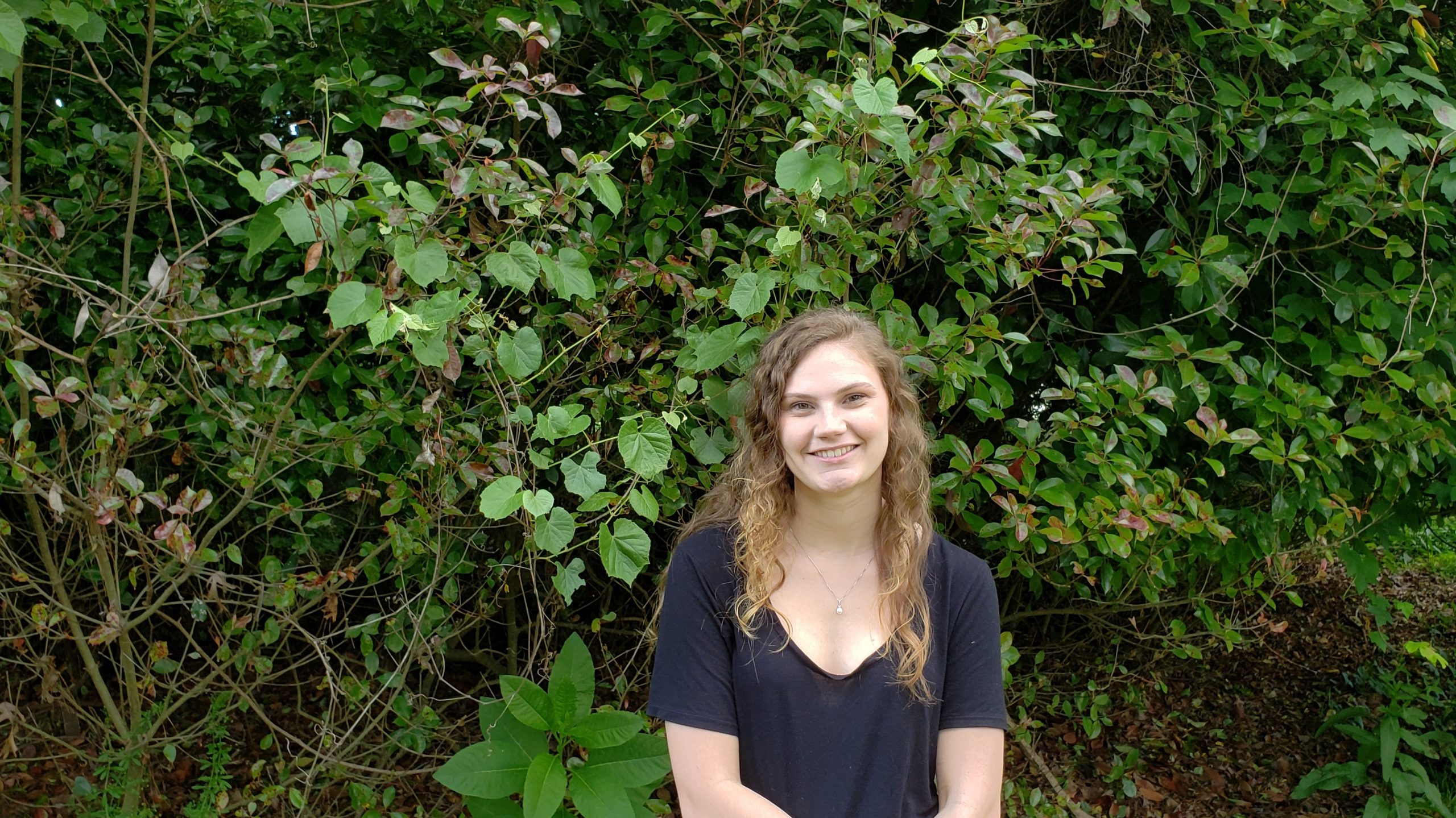Researcher Spotlight – Madeline Anderson

2021-22 Global Change Fellow
Master’s student, Department of Marine, Earth, and Atmospheric Sciences
Advisor: Dr. Astrid Schnetzer
Every year the Southeast Climate Adaptation Science Center funds a multi-disciplinary cohort of Global Change Fellows representing colleges across NC State University. The current cohort of students represents the decadal anniversary of this program! Here are some highlights about 2021-22 Fellow, Madeline Anderson and the applied research she’s conducting.
About You
What do you study?
My research focuses on toxins that are associated with harmful algal blooms, specifically in Bogue Sound North Carolina. I study how the presence of these toxins has changed temporally within the system and I am determining what environmental parameters may be linked to toxin production. I am currently working on a project where we hope to determine if these toxins are being accumulated in suspension feeders like oysters within different ecosystems along the coast of North Carolina.
What is your dream job?
My dream job would involve a mixture of science and education. I would love to be involved in bringing K-12 students into laboratory settings where I am able to facilitate student learning through hands-on science. I have always been drawn to sharing my knowledge of science with others, especially our future scientists.
What (or who) influenced you to go into this field of study?
My decision to study marine science was influenced by the many trips I took to the coast with my family and the growing urge to know more about what I believed as a child was a never-ending ocean. With every trip came new knowledge about the ocean and the creatures within it. Each time I went to the beach I tried my best to find organisms I hadn’t found prior. Each day ended with me reluctantly emptying my bucket full of sand crabs, shells, and clams leaving them for the next explorer to find.
About Your Research

What results are you finding?
Harmful algal species have been found in almost every coastal region of the world. The effects of climate change are predicted to increase the intensity and frequency of these blooms, which could potentially put many coastal regions at risk.
How would you describe you research to a 3rd grader?
When describing my research to a third grader I would tell them that I study some of the smallest creatures in the ocean, organisms that you have to use a microscope to see. While these organisms provide the ocean with many necessary materials that other organisms need to survive, they can sometimes be harmful to humans and wildlife when they come in contact with them. I study these organisms to try and determine what may be causing them to be harmful.
How would you describe you research to an expert in another scientific field?
My research is focused on harmful algal species that are present in a North Carolina coastal ecosystem. I specifically study toxins that can be produced by certain species to determine the risk that they bring to the ecosystem as a whole. These toxins can harm the health of humans and/or wildlife that are present in the impacted water systems.
About Your Global Change Fellow Experience
How do you expect the SE CASC Global Change Fellows Program to impact you and your work?
The SE CASC Global Change Fellows program has impacted not only how I communicate my research to other scientists, but also how I communicate my research to non-scientists. Through this fellowship I have gained critical knowledge in all aspects of science communication that I hope to use in my future career.
What has been the most rewarding part of being a Fellow?
The most rewarding part of being a SE CASC Global Change Fellow is the opportunity to meet other researchers that are not in my field of study. The fellowship has allowed me to build a large network of fellow scientists which would not have been possible without the help of the SE CASC cohort.
What advice would you give to an incoming Global Change Fellow to get the most of their experience?
Some advice I would give to an incoming Fellow to get the most out of their experience is to continue to network with guest speakers and always take advantage of the resources provided by the CASC. You never know what one conversation can lead to.
